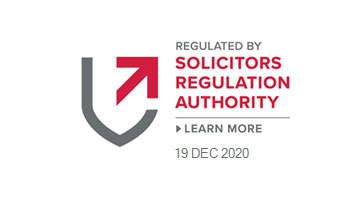What is subletting and how does it differ from an assignment?
In last week’s blog, we discussed some of the elements involved in an assignment of a lease. This week we will look at sub-letting a property, briefly looking over the differences between the two but mainly regarding consent.
Sub-letting is the granting of a sub-lease in favour of another party who will then occupy the property in the original tenant’s (the ‘head tenant’) place. This allows for the head tenant to pass on the burden of rent, or any other financial burdens, to the new tenant. There may even be an opportunity for the head tenant to rent the premises at a higher amount.
Unlike with an assignment, this arrangement will not affect the head tenant’s contractual relationship with the landlord. In an assignment, the lease is transferred from one tenant to another and the rights and obligations of that original lease pass over, leaving the landlord with no direct recourse against the original tenant. With a sub-letting, the head tenant remains liable for all the obligations under the original lease.
As a result of this, there is a difference in what is considered reasonable regarding consent from the landlord. Where for an assignment the new tenant’s financial strength would have been a more likely ground to refuse consent on, with a sub-letting the head tenant is the one liable to pay the landlords rent, and so the new tenant’s ability to pay is less likely to hold up as a reason to refuse.
Consent of the Landlord
A requirement present in almost all commercial leases is for the landlord’s written consent to a sub-lease. Its most common form requires the landlord not to unreasonably withhold consent. This must, however, be expressly stated in the terms of the lease otherwise, the landlord has the absolute right to refuse consent without the need to give any reasons.
What is considered reasonable?
In Burgerking Ltd v Rachel Charitable Trust it was held reasonable for a landlord to withhold consent on the basis that the existence of a reverse premium would be influential evidence in relation to reducing the market value of the rent, which would adversely affect the property’s investment value in the future.
This case provided the key principles for deciding what would be considered reasonable:
- The reason for withholding consent must relate to the relationship between the landlord and tenant and not to gain a collateral benefit.
- Reasons must be given to the tenant at the time of the decision otherwise, they cannot be relied on even if they would have been considered reasonable.
- If more than one reason is provided, then they must be independent of each other for one to be held reasonable.
Benefits to the Landlord
In instances where a tenant might be struggling to pay rent, sub-letting will allow the premise to remain occupied while the tenant passes on the burden. This means the landlord will not have to worry about needing to remove the tenant for non-payment of rent and having to look for a new tenant.
Risks to the Landlord
The landlord will not be a party to the sub-lease, therefore cannot enforce any of the terms of the sublease. This means they will have less control over what happens on the property. Also, like the case mentioned above, if the head tenant decides to lease the property out for a lower rent than the head lease, the future rental value of the premises can be negatively impacted.
Conclusion
Landlords should consider the circumstances carefully when deciding whether to grant consent to a sub-lease. If after careful consideration the landlord decides not to grant consent, a full list of the reasons should be provided so that the decision may stand if the tenant was to challenge it.
If you wish to seek legal advice in regard to sub-leasing, please contact our specialist team here at Onyx Solicitors, at 0121 268 3208 or email us at info@onyxsolicitors.com with your query.





